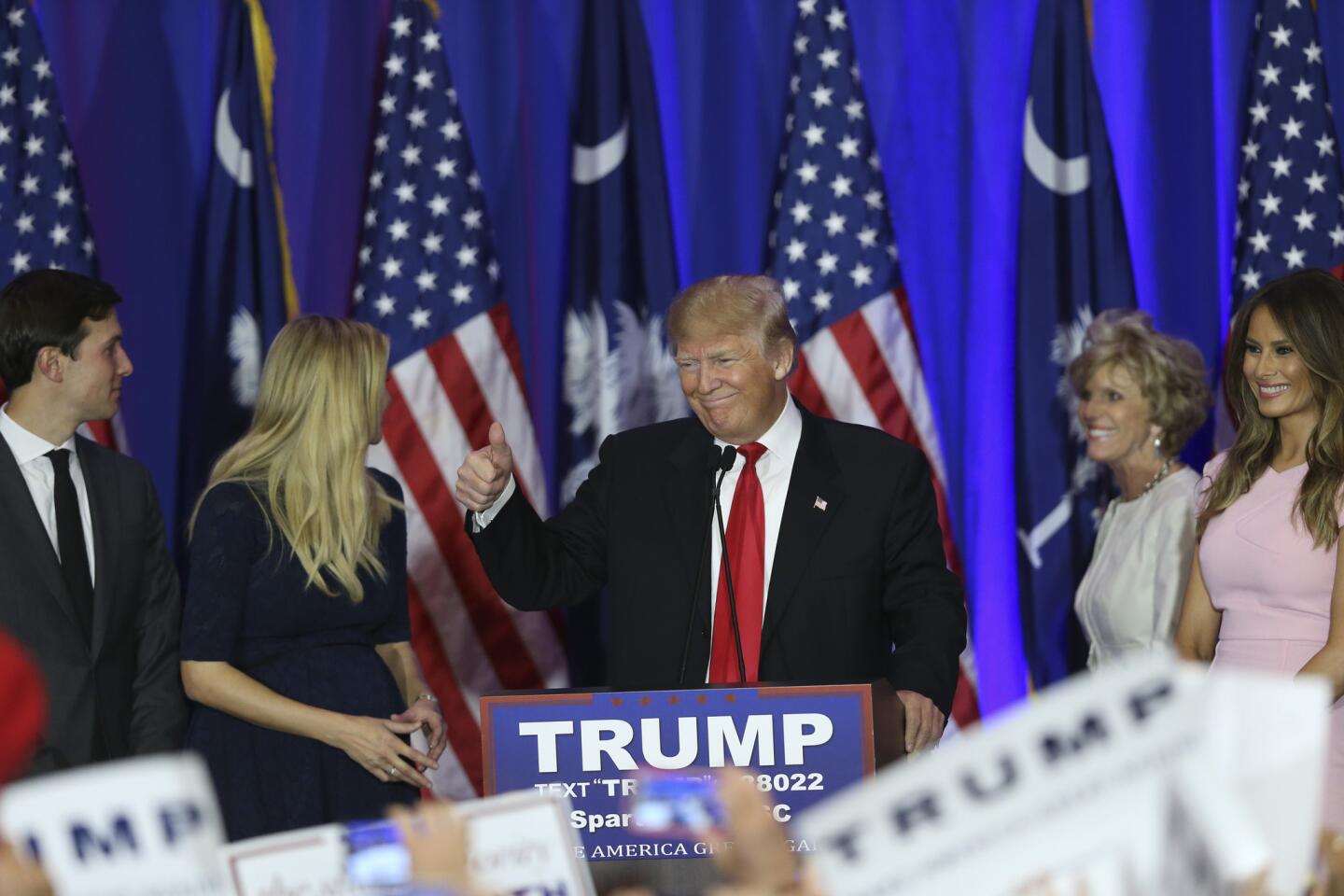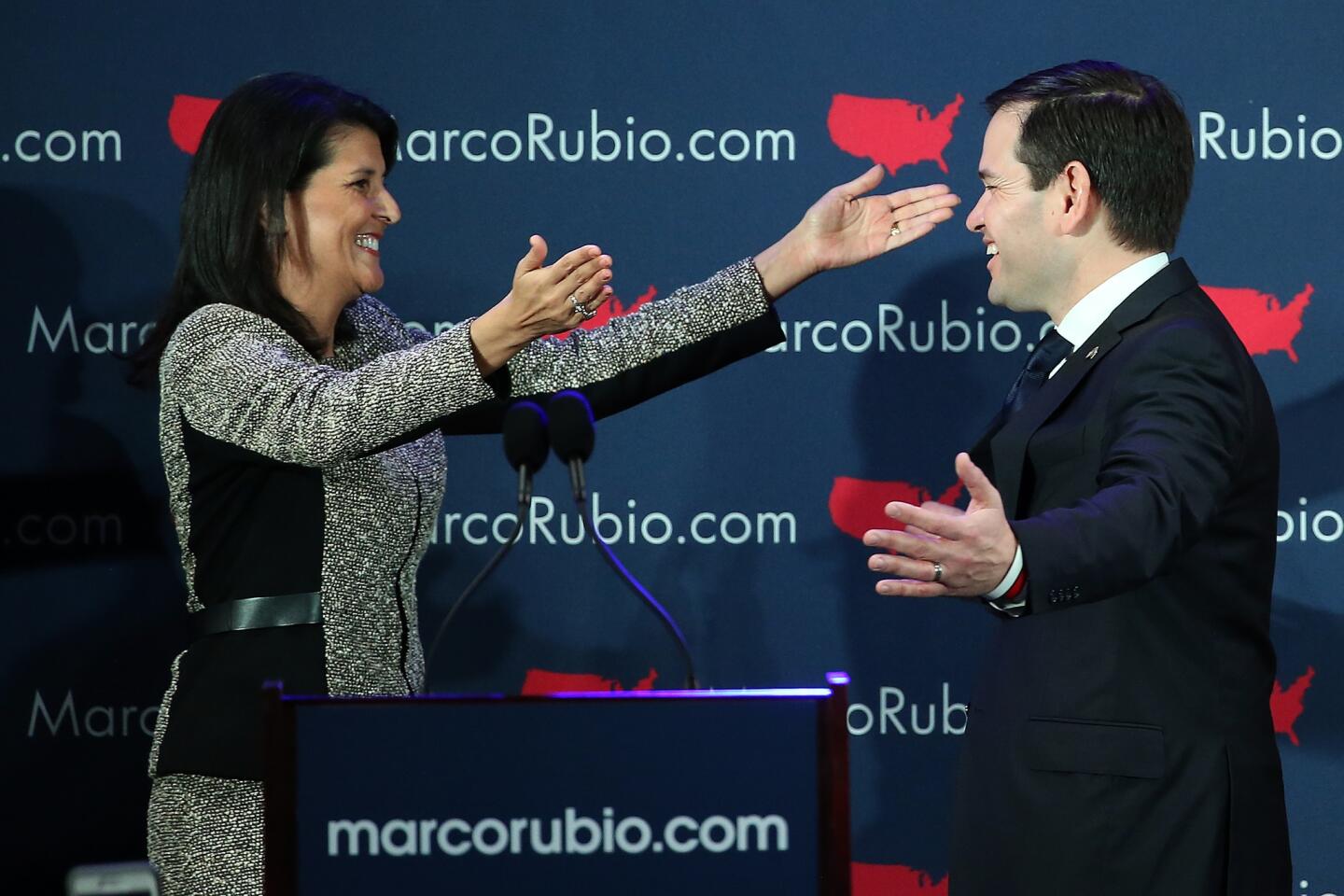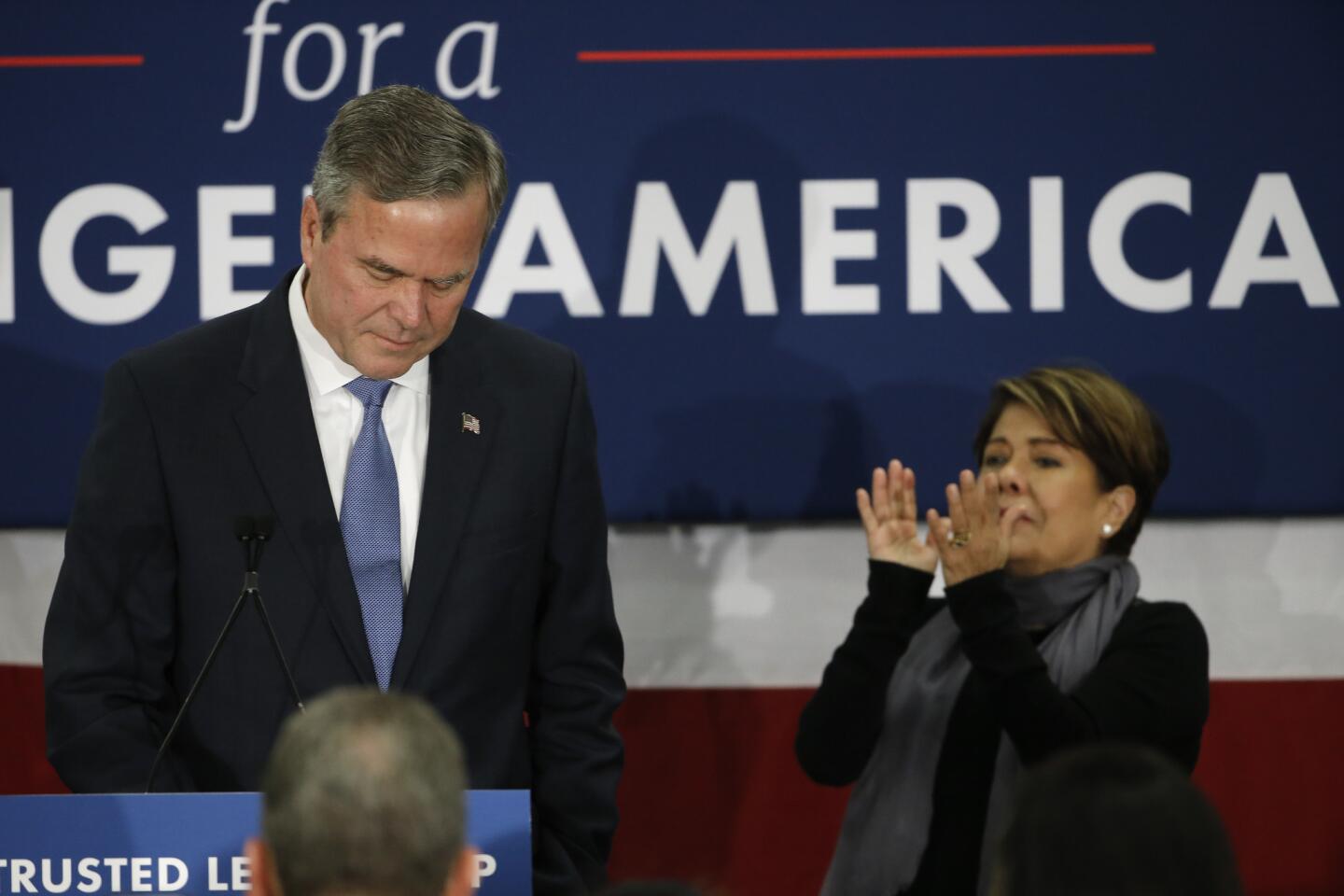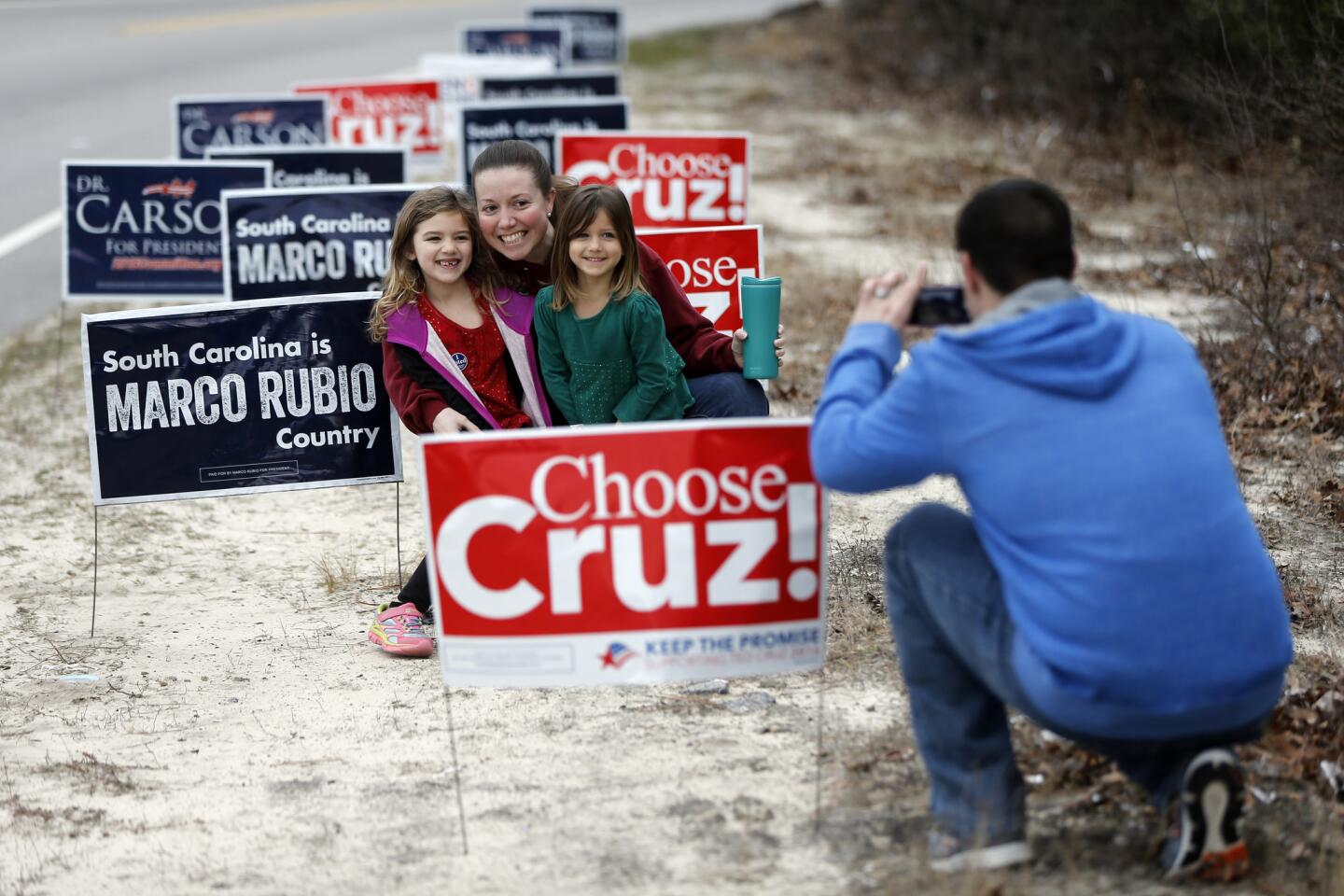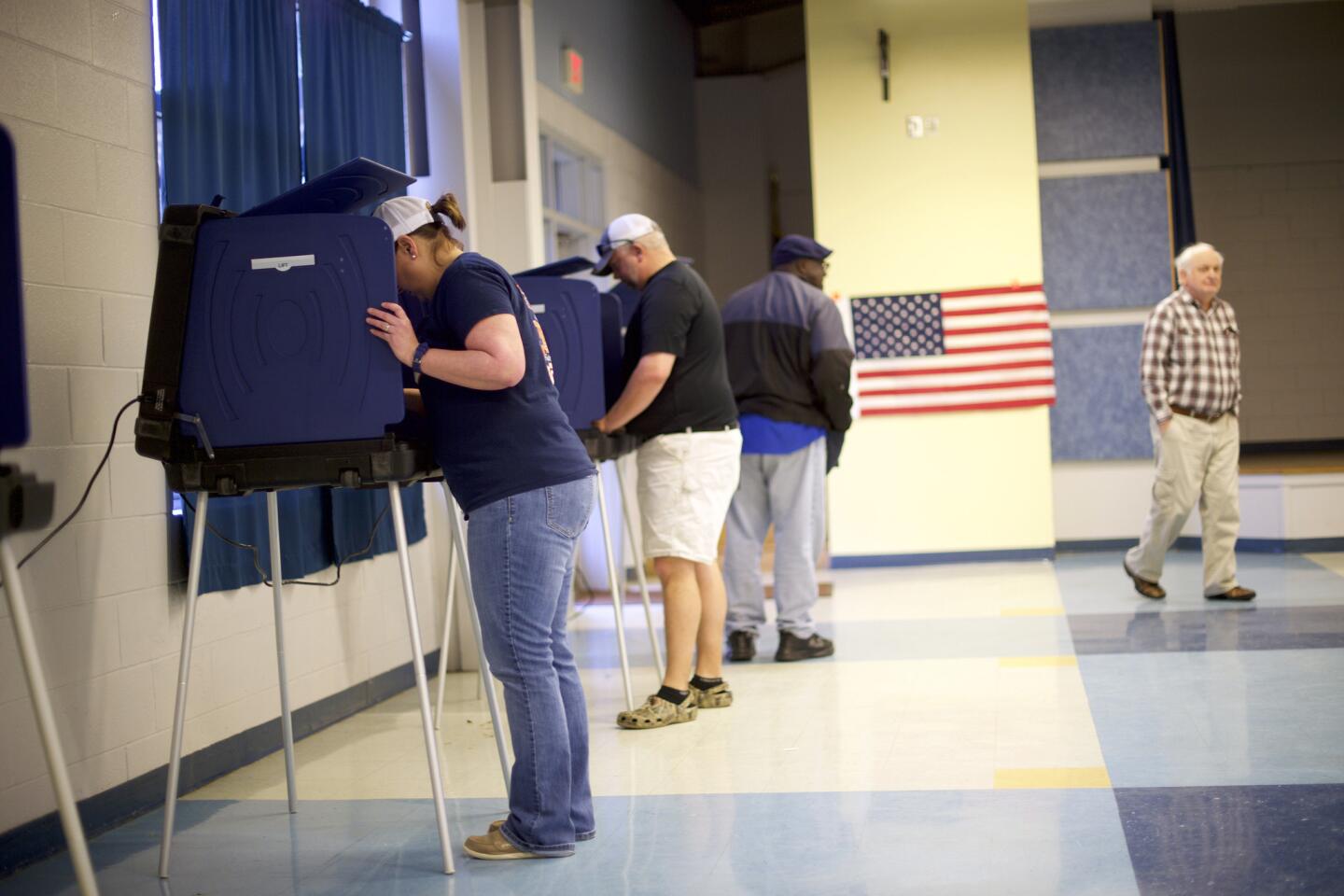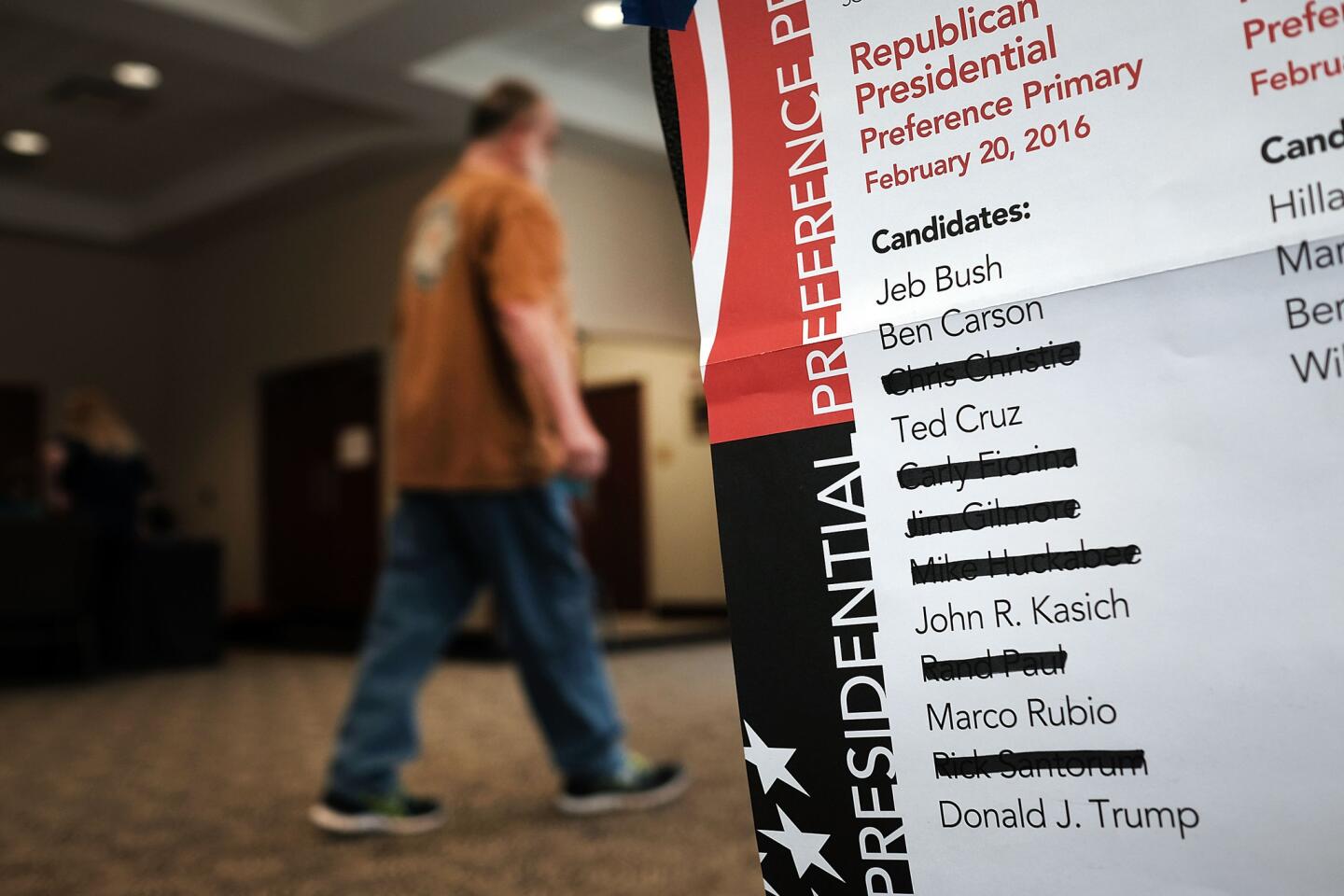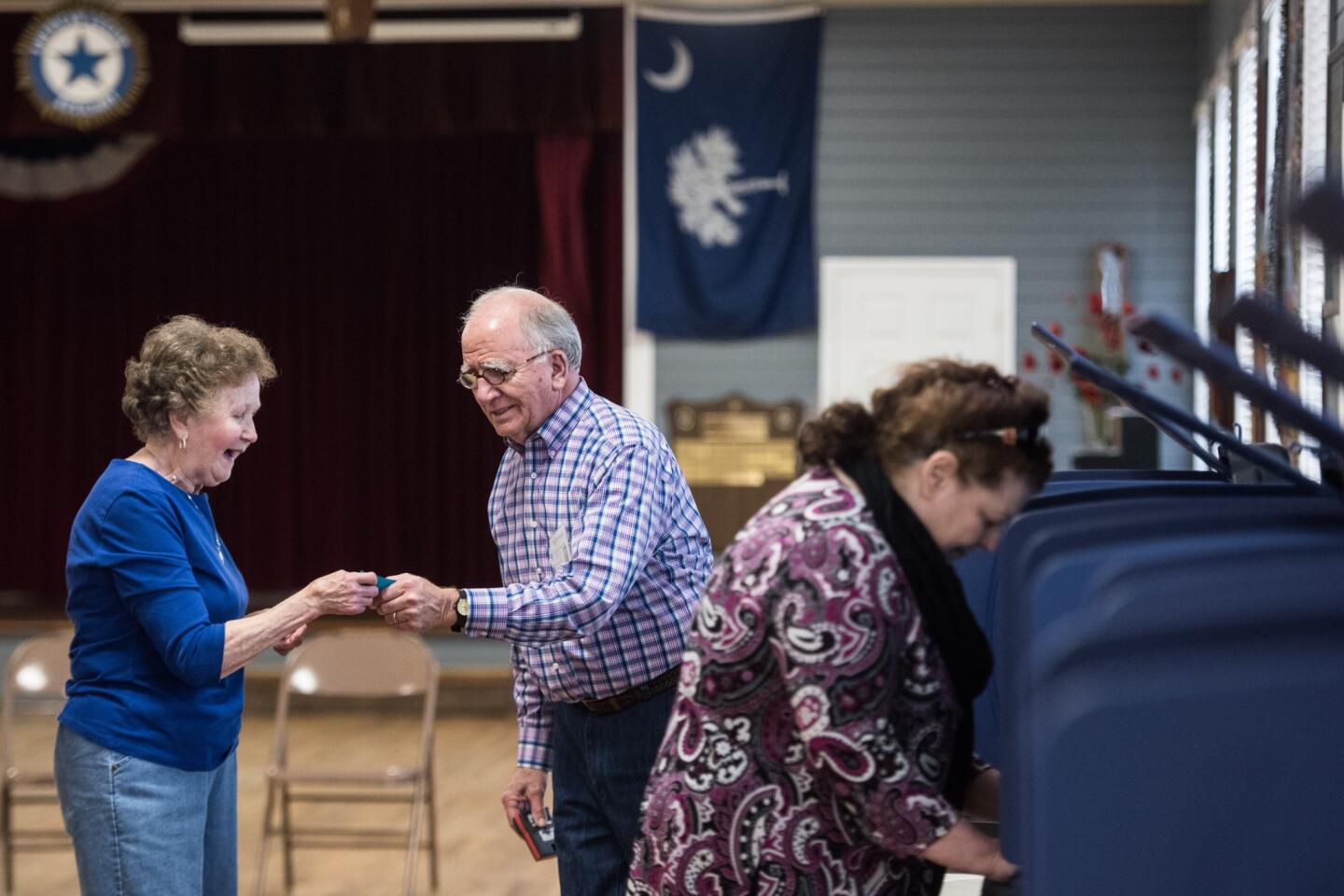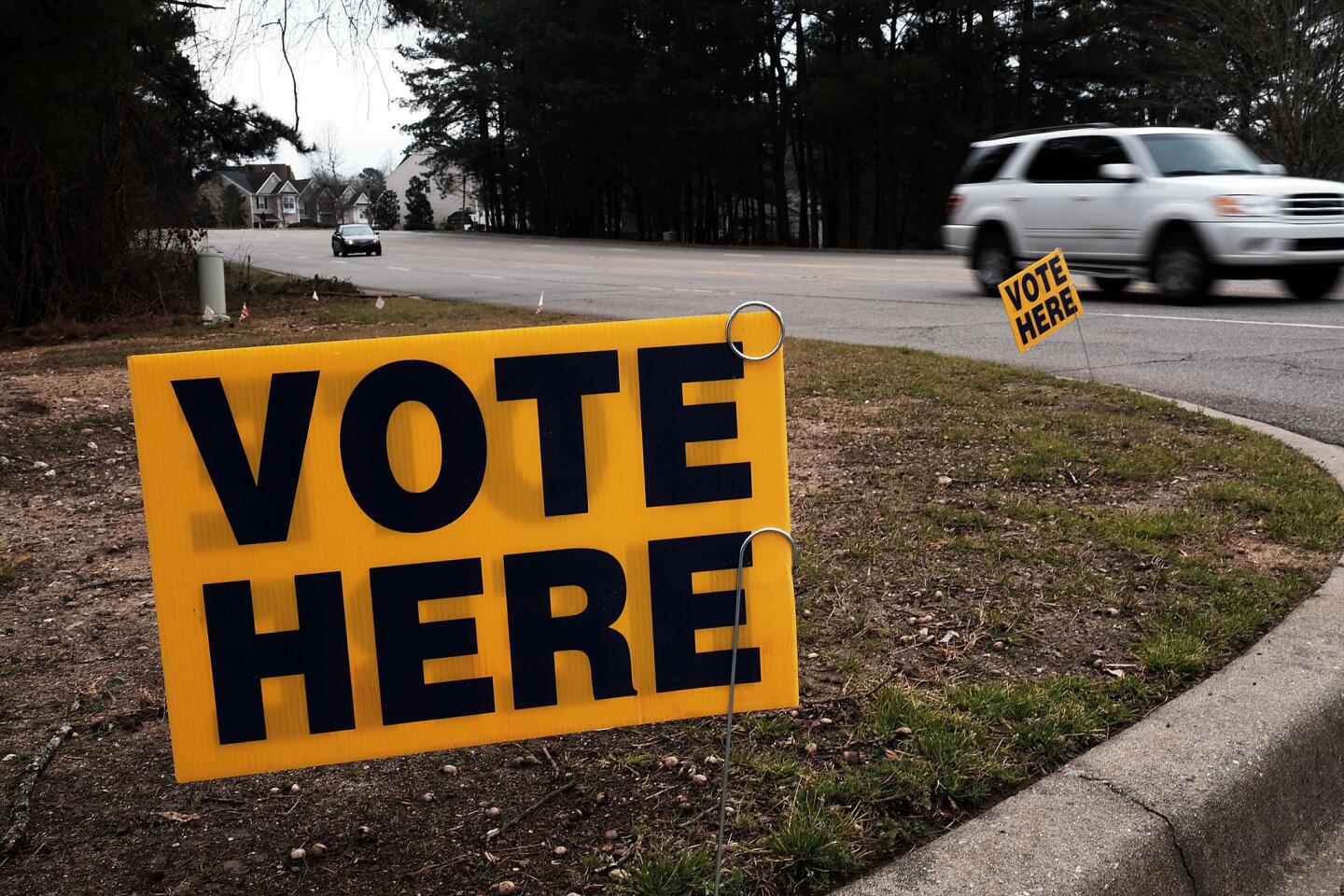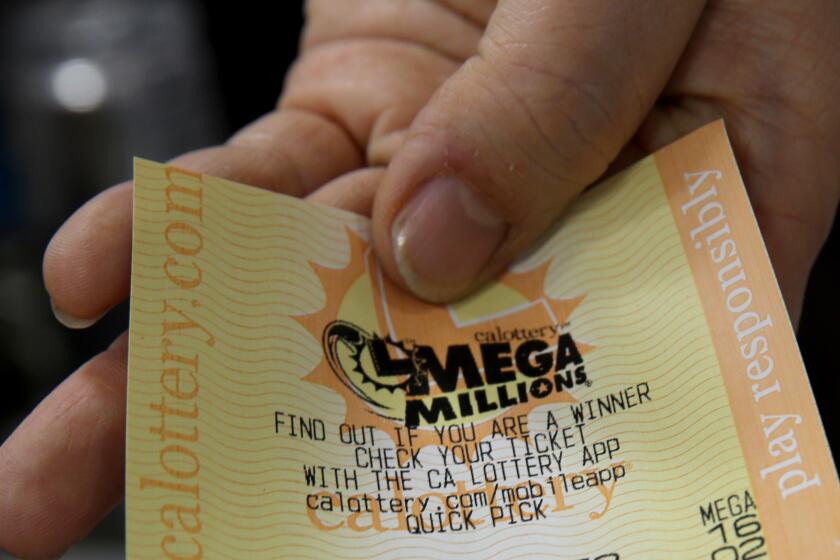Trump wins South Carolina primary: ‘Let’s put this thing away’
Reporting from Columbia, S.C. — Donald Trump rode a week of insults directed at a popular pope and a GOP president to trounce his opponents in South Carolina’s Republican presidential primary Saturday, the most convincing evidence to date that his establishment-smashing campaign is on track to win him the nomination.
None of Trump’s rivals came close to knocking him off, despite — or perhaps because of — his position at the center of one of the most polarizing campaign weeks in recent history.
“There’s nothing easy about running for president,” Trump told a cheering crowd in Spartanburg, S.C. “It’s tough. It’s nasty. It’s mean. It’s vicious. It’s beautiful. When you win, it’s beautiful, and we are going to start winning for our country.”
He added, “Let’s put this thing away.”
The biggest casualty of the night was the epitome of the establishment, former Florida Gov. Jeb Bush, the onetime front-runner who dropped out after voters in a third consecutive state rejected his brand of mainstream conservatism.
Texas Sen. Ted Cruz, who like Trump is running as a party agitator, was jostling for second place with Sen. Marco Rubio of Florida, himself viewed by many party elites as the last man standing between traditional GOP values and the restive forces that have come to upend them in the 2016 campaign.
Ohio Gov. John Kasich, who finished in the single digits like Bush, will try to make the case that he can emerge as a stronger challenger when the race heads to Midwestern states near his home. Retired neurosurgeon Ben Carson vowed to fight on despite his similarly poor finish.
Evangelicals dominated the primary electorate, accounting for about 3 in 4 voters, according to an exit poll conducted by Edison Research for the Associated Press and the major television networks. Though Cruz and Rubio competed intensely for their votes, and Trump has stumbled in talking about religion, Trump nonetheless won the largest share of their support.
Trump won nearly every group of GOP voters: military, nonmilitary, moderates, conservatives, men and women. Only among more educated voters did Trump split votes with his rivals, losing to Rubio among voters with postgraduate education.
Trump ran up his totals by winning big among voters who wanted an outsider and someone who “tells it like it is.” Though Cruz also positioned himself as an outsider, Trump badly beat him among those voters, winning about 6 in 10 of them, four times as many as Cruz. “I’m fed up with politicians. I don’t care what stripe — Democrat, Republican, independent — they’re all the same,” said Howard Winslow, a 74-year-old cab driver and Vietnam War veteran from Columbia, who said he voted for Trump.
Such voters were bad news for Bush, who entered the race last year as the front-runner and immediately attracted more funding and high-profile endorsements than any other candidate in what was once a field of more than a dozen.
“In this campaign, I have stood my ground,” Bush said in announcing his exit. “Despite what you have heard, ideas matter. Policy matters.”
South Carolina not only ended Bush’s candidacy, it may also signal the end of his family’s long hold on the Republican Party.
Trump shattered taboos during last weekend’s debate when he accused Bush’s brother, former President George W. Bush, of lying to bring the country to war in Iraq and failing to keep the country safe from the Sept. 11 attacks.
The Bush family had long counted on South Carolina voters to hoist them in tough times, and Jeb Bush campaigned throughout the week with both his 90-year-old mother, Barbara, and his brother, the former president.
“I feel sorry for Bush,” said Rick Arkell of Columbia, a retired weather forecaster. “He has the wrong last name.”
In addition to the Bush family, Trump took on Pope Francis over immigration and Trump’s oft-stated goal of building a border wall to stop illegal immigration from Mexico. Francis had asserted to reporters, “A person who only thinks about building walls, wherever they may be, and not building bridges, is not Christian.”
Trump did not come close to backing down, calling Francis’ comments “disgraceful” and insisting that the pontiff would pray for a Trump presidency “if and when the Vatican is attacked by ISIS,” another name for the Islamic State militant group.
Trump’s voters seemed to lap it all up, becoming more devoted to him with each fight. As one of them said this week, “We’re voting with our middle finger.”
“Enough bull,” said another supporter, Wayne Wates, a retired butcher on his way in to vote for Trump in Edgefield. Despite racking up another win, Trump continues to alienate large groups of voters — 40% of those surveyed in a national Fox News poll conducted this week said Trump was the candidate they would most dread watching on television for the next four years.
Yet he maintains seemingly unflappable support from about a third of the Republican electorate. Challengers are hoping that gives them a one-on-one opening.
But two factors could conspire to give Trump the nomination.
First, his challengers continue to find reasons to remain in the race, and the longer the field remains crowded, the harder it is for any one of them to attract more voters than Trump in a given state. In fact, one of Rubio’s main arguments is that “the longer this goes on, the worse it’s going to be,” and therefore he is the candidate who can unify the party. A Bush aide said he dropped out in part to help the party unite behind an alternative.
Trump himself mocked pundits for saying his opponents’ votes combined could defeat him if some of them drop out.
“These geniuses,” he said, his voice dripping with sarcasm. “They don’t understand that as people drop out, I’m going to get a lot of those votes also. You don’t just add them together.”
Second, polls show an increasing number of Republicans have become comfortable with Trump leading the party’s ticket in the November general election. In the Fox poll, 74% of Republicans said they would be at least somewhat satisfied with Trump as president. That number was far smaller (43%) among all voters.
To beat back Trump, Cruz, who won the Iowa caucuses, will need to pick up wins in a slew of Southern state primaries held March 1, and hope other contenders drop out. But the Texas senator ultimately will have to persuade more voters to embrace his pure form of conservatism and reject Trump as a phony, a case he has been trying to make for weeks.
“If you are conservative, this is where you belong,” Cruz told supporters Saturday. “Because only one strong conservative is in a position to win this race.”
Rubio, who may have been helped by his endorsement this week from South Carolina Gov. Nikki Haley, has a different challenge. The Florida senator will have to begin winning states and hope that a majority of Republicans decide they want a more mainstream candidate, despite polls showing voters are looking to back those who have not served in government.
Rubio did well among GOP primary voters who said they wanted to vote for the best general election candidate, but only about 15% of South Carolina voters said that was a priority.
“If it is God’s will that we should win this election,” Rubio said Saturday night, “then history will say, on this night in South Carolina, we took the first step forward to the beginning of a new American century.”
seema.mehta@latimes.com
lisa.mascaro@latimes.com
noah.bierman@latimes.com
Mehta and Mascaro reported from Columbia and Bierman from Washington. Times staff writers Chris Megerian and Michael Finnegan contributed to this report.
ALSO:
Hillary Clinton narrowly defeats Bernie Sanders in Nevada caucuses
Jeb Bush, after disappointing finish in South Carolina, ends his campaign for president
Latinos seek answers from Sanders and Clinton at Democratic forum in Las Vegas
More to Read
Sign up for Essential California
The most important California stories and recommendations in your inbox every morning.
You may occasionally receive promotional content from the Los Angeles Times.
